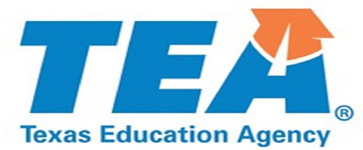California governor proposes nearly $1 billion to tackle teacher preparation, shortages – By John Fensterwald, EdSource
Anticipating nearly $4 billion more in revenue for K-12 schools and community colleges in the next state budget, Gov. Gavin Newsom on Friday proposed to continue massive investments for teacher recruitment and training and for transforming special education.
He also proposed spending hundreds of millions of dollars in grants to improve performance in the lowest-performing districts and to expand community schools, which address the physical and mental health of students through partnerships with community services.
Total funding for K-12 and community colleges through Proposition 98, the formula that determines the minimum state education funding, would increase $496 per student to $12,600 in 2020-21. That record amount — 80 percent more per student than at the low point following the Great Recession nine years ago — shows significant improvement, he said. Using a football metaphor, he said there is more work to be done. “None of us are spiking the ball,” he said.

Texas education officials weigh new rules to fast-track charter school expansion – By Aliyya Swaby, The Texas Tribune
Amid protests from teachers' groups and public school advocates, Texas education officials are rewriting the state's rules for approving new charter schools in order to speed up the process and allow some charter operators to expand more quickly and with less state oversight.
The Texas Education Agency solicited comments at a hearing Monday in Austin on proposed changes that would create a new scoring system to fast-track expansion of the highest-performing charters while prohibiting the lowest-rated ones from opening new schools.
A coalition of advocacy groups and teachers associations argued at the hearing that the state should instead put up more roadblocks to slow expansion of charter schools, which are managed by nonprofits but funded by the state.
They argued that letting some charters open new schools almost automatically would eventually burden the state financially and siphon taxpayer money and students from traditional school districts. They also criticized the proposed scoring system, saying it could allow the proliferation of charter schools that lure the most promising students from traditional public schools but fail to serve students with disabilities and language needs.

Could a new vaping and tobacco tax pay for free preschool in Colorado? Advocates want to ask voters in November – By Ann Schimke, Chalkbeat
Colorado voters could decide this November whether to fund free preschool for 4-year-olds statewide by taxing tobacco and vaping products.
On Friday, two citizens took the first step toward putting the question on November’s ballot, filing more than a dozen possible versions with the state’s Office of Legislative Council, which reviews potential initiatives before sending them to the Secretary of State’s Office.
The money from a new vaping and tobacco tax, which is sure to be vehemently opposed by the tobacco industry, would go a long way toward helping Gov. Jared Polis make good on his promise to offer free preschool to all 4-year-olds by the end of his first term.

Report: Liberal arts colleges deliver one of the highest returns on investment – By Natalie Schwartz, Education Dive
Liberal arts colleges tend to have higher returns than most other types of institutions, though graduates don't see their investment pay off immediately, according to a new report from Georgetown University's Center on Education and the Workforce (Georgetown CEW).
A decade after enrolling, students at liberal arts colleges see a median return on investment of $62,000, which is roughly 40% lower than that of all institutions. But at the 40-year mark, they have a median return on investment of $918,000, compared to the $723,000 median for all schools.
The findings come as more Americans question the value of higher education and some liberal arts colleges struggle with enrollment declines.












